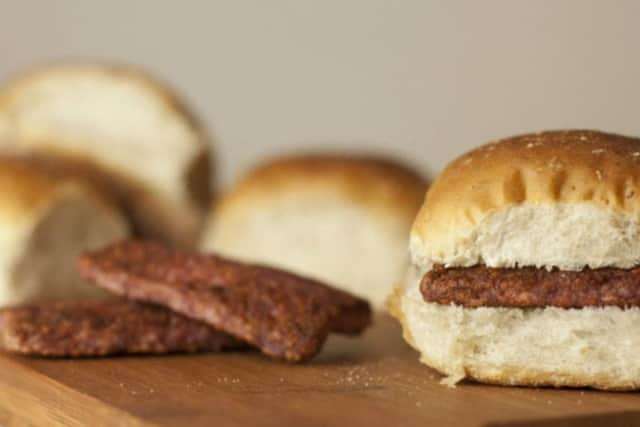Why doesn't Scotland celebrate its food history like France and Italy?
A good crispy morning roll and square sausage or a plate of mince and tatties should be as celebrated as much in Scotland as Parma ham, baguettes and a nice plate of chorizo are regarded on the Continent, it has been claimed.
Academics, foodies, producers and writers will gather today to argue that Scotland’s vast food history deserves to be better understood and supported both for the good of the industry – and the pride of the nation.
Advertisement
Hide AdAdvertisement
Hide AdDr Lindsay Middleton, a food historian at Glasgow University will be among speakers at Scottish Food Heritage Symposium at Paisley Town Hall along with Peter Gilchrist of the Tenement Kitchen, a researcher with an interest in Scottish folk cooking and recipes.


While luxury provenance food like Aberdeen Angus beef, salmon, shellfish and whisky have come to define the success of the Scottish food industry, everyday recipes and dishes are broadly missing from the country’s long food story and often stereotyped, they said.
Dr Middleton, who works with the food sector to identify challenges facing the industry, said: “One of the things that has came up time and time again, and which I have experienced in my own research as well, is the lack of sustained understanding or celebration of Scottish food heritage.
“There is a real lack of good historical understanding of Scottish food, it tends to get stereotyped or pushed into a few patterns rather than comprehensively understood so the need for this symposium emerged from that.
“We wanted to really make an effort to celebrate Scottish food heritage but also to show its value and make a case for sustained investment.”
She said attitudes surrounding class had impacted attitudes towards Scotland’s food culture and heritage as had a tendancy to lean into stereotypes of Scottish food, such as the deep fried mars bar.
"There is a lack of pride in our food and in that provenance which you don’t see in countries like Italy or France where even the so-called peasant food is talked about incredibly highly . As a theme, it doesn’t really seem to have translated,” she added.
Dr Middleton said Scotland’s earliest printed cook books were “incredibly international, not just in terms of ingredients but also in terms of cooking methodologies” with the Romans bringing numerous spices to Scotland.
Advertisement
Hide AdAdvertisement
Hide AdMrs McLintock's Receipts for Cookery and Pastry-work, published in Glasgow in 1736, is considered the first published recipe book in Scotland and includes a recipe to “to frigase oysters.”
Meanwhile, the 19th Century Glasgow Cookery Book includes a recipe for macaroons while the 1925 Scottish Women’s Rural Institute Cookery Book includes Petites Crèmes a la Josephine.
Mr Gilchrist said a “massive part of our food history” had been missed out given the ongoing promotion of luxury, high value products.
He said it was time that the crispy Glasgow morning roll and a “perfectly spiced” square sausage should be “as every bit celebrated as a “chorizo nibbly plate” or Parma ham and a French baguette.
“In this country we have some of the best butchers and bakers in the world. But we don’t glamorise a morning roll. I think we should. Every country has its star.”
Other speakers at the event include writer Ben Mervis of Netflix's Chef's Table, Rachel McCormack of BBCR4's the Kitchen Cabinet and historian Professor Murray Pittock, of Glasgow University. Tickets for the event are available here .
Comments
Want to join the conversation? Please or to comment on this article.